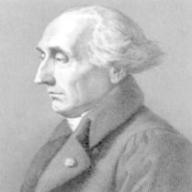It is known that an electron of charge e moving in a magnetic field B with velocity v will experience a magnetic force Bev perpendicular to the direction of the magnetic field and motion of the electron.
I have been under an impression that the magnetic force acting on the electron originates from relative motion between the electron and the magnetic field.
If I am correct, a result can be obtained:
An electron, which is stationary relative to an observer, is placed inside a hypothetically large magnet which provides a steady magnetic field and moves with a constant velocity relative to the observer, will experience a magnetic force.
I suppose this is correct at least when the observer is moving as the same velocity as the large magnet. But if I am completely correct, here comes a question:
Is that the magnetic field produces a larger magnetic flux density (relative to the electron) when the field is moving? Otherwise, who knows whether the magnetic field is actually moving or not?
If this is also true, then can I come to the conclusion that an electron moving in a magnetic field experiencing a magnetic force is due to the change in electric field as well as the magnetic field?
Also, I want to ask why a moving magnetic field can be considered a magnetic field with larger magnetic flux density (if it is true). Is there any mathematical approach? Also, of what apparent path will a stationary electron move if it is placed in a moving magnetic field?
Your help will be highly appreciated.
「在磁場運動中的電子受力」是否等價於「磁場的改變產生電場」?
2012-02-14 11:23 pm
回答 (1)
2012-02-16 8:41 am
✔ 最佳答案
In classical electromagentic theory, the magnetic force (i.e. Lorentz force) acting on a moving electron in a magnetic field can be explained by the interaction of magnetic fields respectively produced by the moving electron with the (applied) steady magnetic field.For example, suppose the steady field is pointing vertically downward, an electron is moving in direction into the paper. Accoding to classical electromagentic theory, this is equivalent to a current flowing in direction out of the paper. A current in such direction produces magnetic field with circular field lines centered at current. You may then visualize that the interaction of these (counterclockwise) circular magnetic field lines and the applied steady field produces a resulant field with strong intensity to the left hand side of the electron and weak intensity to the right hand side. The difference in field intensity thus forces the electron to move towards the right. This is the origin of magnetic force.
But classical electromagentic theory cannot explain why a flow of charge (or current) produces magnetic field.
On the other hand, if the magnetic field is moving but the electron is stationary, field lines will cut across the electron. By theory of electromagentic induction, cutting of field lines causes an induced force pushing the electron to move (i.e. an induced current). This can be explained by the relative motion of electron with respect to the field. The magnetic force (Lorentz force) produces on the electron causes it to move.
(to be continued on "opinion (意見)" as word limit is exceeded)
2012-02-16 00:43:09 補充:
(cont'd)...
There is deficiency in classical electromagentic theory in explaining some physical phenomena, as electric and magnetic fields are regarded as fields of different nature. However, modern theories, such as Relativity, throw new sight on the two fields.
2012-02-16 00:53:32 補充:
There is deficiency in classical electromagentic theory in explaining some physical phenomena, as electric and magnetic fields are regarded as fields of different nature. However, modern theories, such as Relativity, throw new sight on the two fields.
2012-02-16 00:53:58 補充:
You may refer to the article on the following web-page, which is highly recommended for reading,
http://galileo.phys.virginia.edu/classes/252/rel_el_mag.html
2012-02-16 00:54:55 補充:
The article, using Relativity theory, shows that magnetic field is indeed electric in nature when observing in another frame of reference.
2012-02-16 00:55:08 補充:
It conculdes that "...whether a particular force on an actual particle is magnetic or electric, or some mixture of both, depends on the frame of reference."
收錄日期: 2021-04-29 17:46:33
原文連結 [永久失效]:
https://hk.answers.yahoo.com/question/index?qid=20120214000051KK00339

